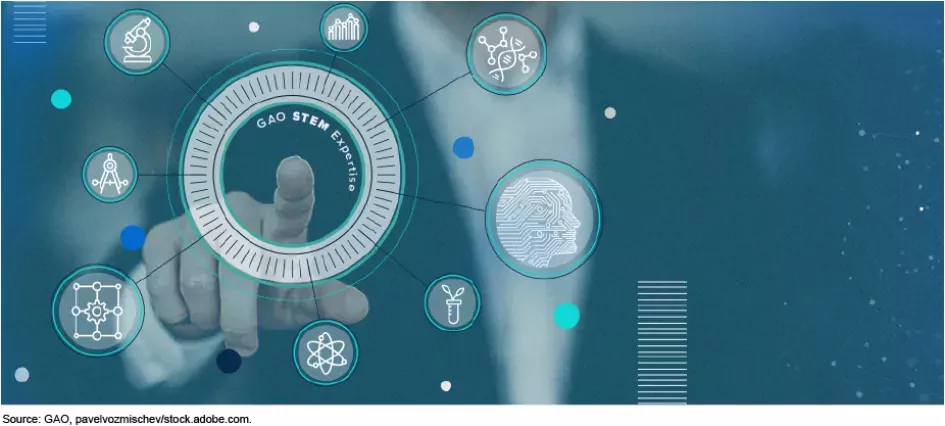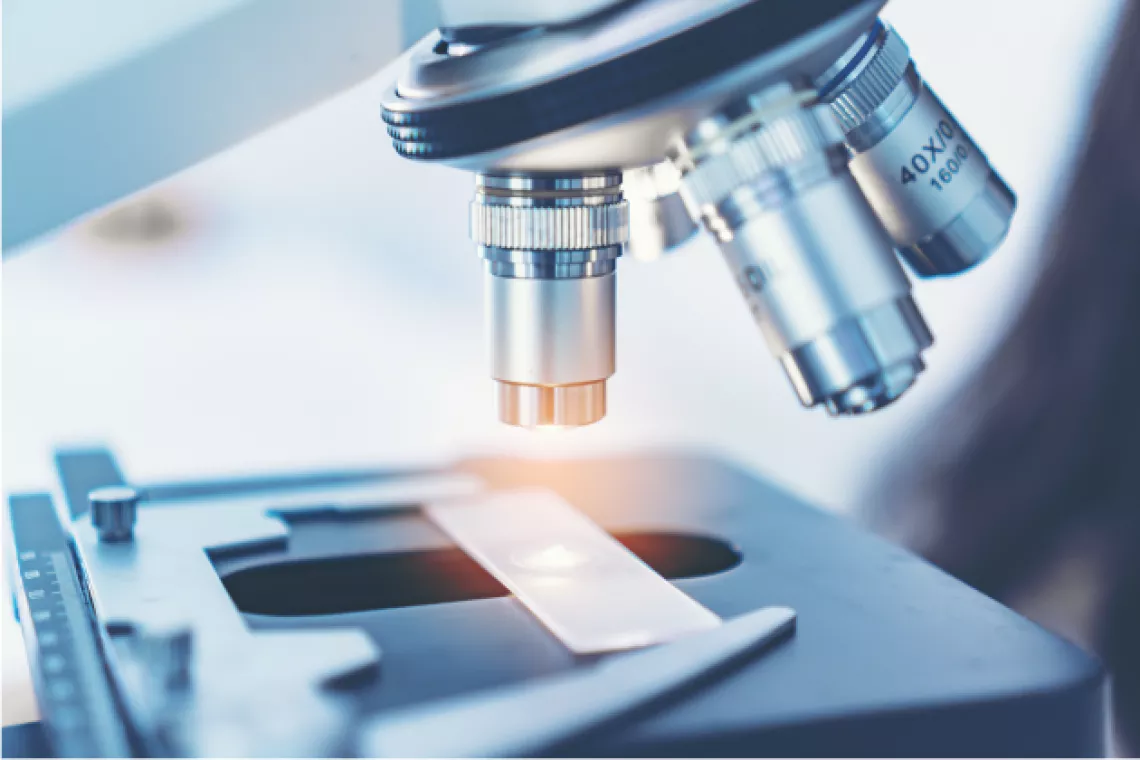Full STEM Ahead—Supporting Congressional Decisions in Science and Technology
From smartphones and internet-connected home devices to the bioengineered vaccines that preserve life—our daily lives are profoundly impacted by advancements in science and technology.
Here at GAO, we explore the opportunities and the challenges of emerging science and technology developments for Congress. From quantum computing and blockchain to the global semiconductor shortage, our work can inform national policy decisions.
Today’s WatchBlog post provides an update on our work in these areas.
Bringing science and technology into focus
Our STEM expertise allows us to support a wide variety of Congressional needs.
For example, in July 2022, we reported on options to address risks in the semiconductor supply chain. Our nation faces supply chain shortages in these microchips that are critical to nearly all U.S. industries and our national defense. This low supply led to a production of 3 million fewer cars in North America last year, and a 12% price increase for new cars. Our report discussed a range of policies that could reduce semiconductor supply chain risks and help mitigate future semiconductor shortages.
Similarly, in March, we completed an assessment of blockchain technology. Blockchain can be used for a variety of financial and non-financial applications, such as cryptocurrency and supply chain management. Blockchain is useful for some applications, but limited or even problematic for others. For example, because of its tamper resistance, it may be useful for applications involving many participants who do not necessarily trust each other. But it may be overly complex for a few trusted users, where traditional spreadsheets and databases may be more helpful. Blockchain may also present security and privacy challenges and can be energy-intensive.
These are just two examples. In the next year, we will also be exploring a wide range of other issues like brain-computer interfaces, gene editing, energy innovation, and federal investment in research infrastructure.
Image

Exploring new tools for tomorrow
Helping Congress move from today’s problems to tomorrow’s policy solutions will require strategic steps.
We will continue to provide innovative ways to communicate with Congress and the federal science and technology community—be it through technical consultation to Congress and its staff or expanded product options, such as new data science products and trainings. For example:
Data science products. Over the next year, our Innovation Lab plans to prototype emerging technologies—including blockchain, robotic process automation, and extended reality—to learn more about their potential benefits in federal auditing. The lab’s findings will be used to improve the audit tradecraft and help inform the accountability community.
Trainings. To help increase congressional awareness of our science and technology topics, our experts have led multi-part training courses on complex issues such as Artificial Intelligence and blockchain. These trainings—grounded in our findings and agency recommendations—reached hundreds of congressional staff in a format that encouraged real-time questions and discussion.
Given the exponential growth of scientific advances, it is critical that policymakers and the public have access to timely and nonpartisan analysis of complex science and technology issues. While we cannot predict the future, our STEM experts and policy analysts will continue to support Congress as it grapples with the opportunities and challenges that emerging science and technology present.
Find out more by checking out our new report about science, technology assessment, and analytics at GAO.
Comments on GAO’s WatchBlog? Contact blog@gao.gov.





